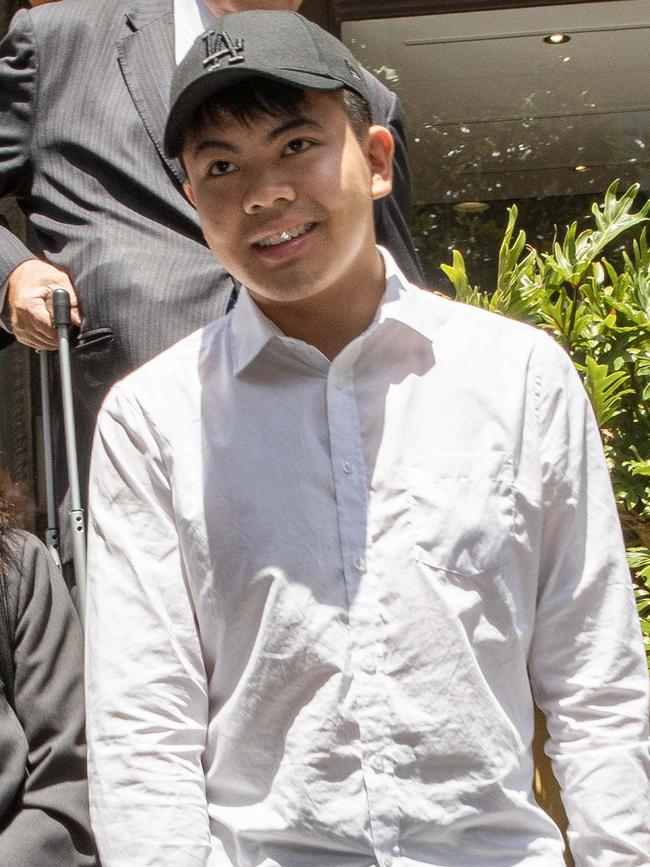Detail that brought down teen Optus scammer’s blackmail bid
A Sydney teen who tried to extort hundreds of thousands of dollars from Optus hack victims made a series of bumbling errors after launching his scam.

An unemployed Sydney teenager who made a bumbling attempt to extort hundreds of thousands of dollars from Optus customers following the telco’s data breach was brought down when he failed to disguise his own phone number, a court has heard.
Dennis Su, who was 19 at the time of his offending, sat silently as he learned his fate inside Sydney’s Downing Centre Local Court on Tuesday before issuing a mea culpa to his victims.
The court heard he wasn’t involved in the massive data breach, which accessed thousands of customers’ data in September last year, but instead tried to make a quick buck by ransoming their sensitive information which he found online.
Magistrate Emma Manea described his offending as immature and unsophisticated and pointed out he was always going to be caught given he made little to no effort to cover his tracks.
“It was his own number, his brother’s account,” she said.
“He was going to be caught pretty easily, I would have thought. It wasn’t a sophisticated method of hiding behind encrypted accounts.”
The court heard Su had sent scam messages to 93 customers claiming to be responsible for the cyber attack and demanding payment.



Su sent messages threatening to use customers’ information for fraudulent activity unless they paid $2000 into a bank account which belonged to his 15-year-old brother.
None of the customers paid his ransom, even after he sent follow-up messages, and his scam was reported to police, who were able to trace the bank account back to Su.
Su then showed up at his local branch to make inquiries after the account was suspended.
When he sent the messages, he didn’t realise his victims could see his phone number, the court heard on Tuesday.
His Rockdale home, in Sydney’s south, was raided by the Australian Federal Police on October 6 and he later admitted he saw the scheme as an opportunity to make “quick money” because he was unemployed.
The court heard that at the time, despite sending the message to 93 victims, he only expected to make $2000 to $4000.



Su, now 20, last year pleaded guilty to two counts of using equipment connected to a network to commit a serious offence.
The charge carries a maximum penalty of 10 years in prison.
Two previous charges of dealing with identity information to commit an indictable offence and demand with menace intending to obtain gain were previously withdrawn.
Ms Manea on Tuesday told Su that given the seriousness of his offending, he was close to either being sent to jail or handed a sentence to be served in the community.
“But I do think, on the balance, the community would be better served by a young person undertaking rehabilitation,” Ms Manea said.
She put his crimes down to his youth and immaturity and said if he were working, he wouldn’t have had the hours to carry out the attempted scam.

Ms Manea said a “clear message” needed to be sent to other would-be offenders.
She recorded a conviction, sentenced Su to an 18-month community corrections order and 100 hours of community service.
Outside court, Su said he realised from the moment he attempted to swindle money from his victims he knew he was going to be caught.
“I’d like to say sorry to all my victims I targeted,” Su said.



